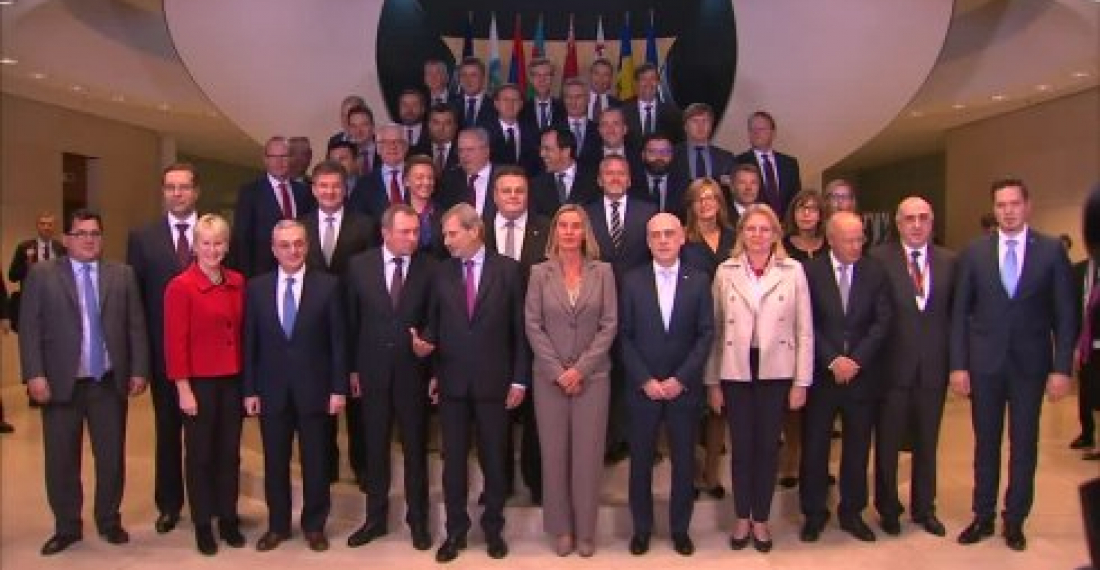15 октября, в Люксембурге, состоялось министерское совещание «Восточного партнерства» (EaP), в котором приняли участие министры иностранных дел ЕС и их коллеги из шести стран Восточного партнерства (Армения, Азербайджан, Беларусь, Грузия, Республика Молдова и Украина), а также ключевые заинтересованные стороны, участвующие в регионе. Встречу возглавила Верховный представитель ЕС по иностранным делам и политике безопасности Федерика Могерини.
Министры иностранных дел оценили прогресс в достижении к 2020 году 20 результатов, принятых на последнем саммите Восточного партнерства в ноябре 2017 года.
Встреча состоялась через год после последнего саммита Восточного партнерства, в ходе которого все партнеры договорились об амбициозном плане работы, направленном на то, чтобы принести ощутимые выгоды для граждан во всем регионе. С тех пор сотрудничество между ЕС и его шестью восточными странами-партнерами сосредоточено на работе в направлении более сильной экономики, более сильного управления, более сильных связей и более сильных обществ.
Встреча на уровне министров также дала возможность обменяться мнениями и подготовиться к предстоящей 10-й годовщине Восточного партнерства, которая будет отмечена рядом событий на протяжении 2019 года.
источник: commonspace.eu
фото: Общая фотография Совещания министров Восточного партнерства в Люксембурге, 15 октября 2018 года (фотография предоставлена пресс-службой Европейского Союза)







